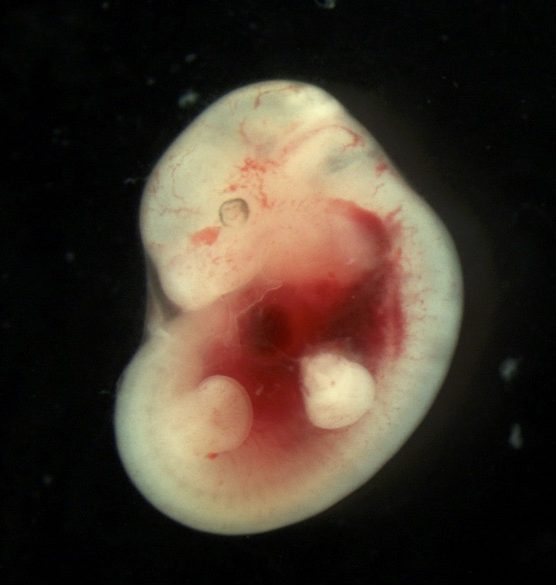
Midgestation mouse embryos with excessive endothelial RIPK3 undergo lethal vascular rupture. Our research is defining novel transcriptional regulators of Ripk3 and mechanisms by which elevated RIPK3 compromises vascular integrity.
Our ongoing analysis of embryos with mutated chromatin-remodeling enzymes has piqued our interest in the protein RIPK3, which is best known as a key executor of the programmed necrosis (necroptosis) cell death pathway. We recently reported that embryonic vessels with elevated endothelial RIPK3 expression are prone to rupture (Colijn, Gao, Ingram et al, 2020). However, this vascular fragility appears to be unrelated to necroptosis, which implies that excessive RIPK3 can play other detrimental roles in endothelial cells. Interestingly, our research indicates that RIPK3 also plays beneficial roles in endothelial cells, including athero-protective (Colijn et al, 2020) and pro-angiogenic roles (Gao and Griffin, 2021). Therefore, RIPK3 requires tight transcriptional regulation and expression in endothelial cells; too much or too little of the protein compromises vascular function and stability. Several ongoing project in the lab are focused on defining additional physiological and pathological roles for RIPK3 and its impact on vascular development and maintenance.